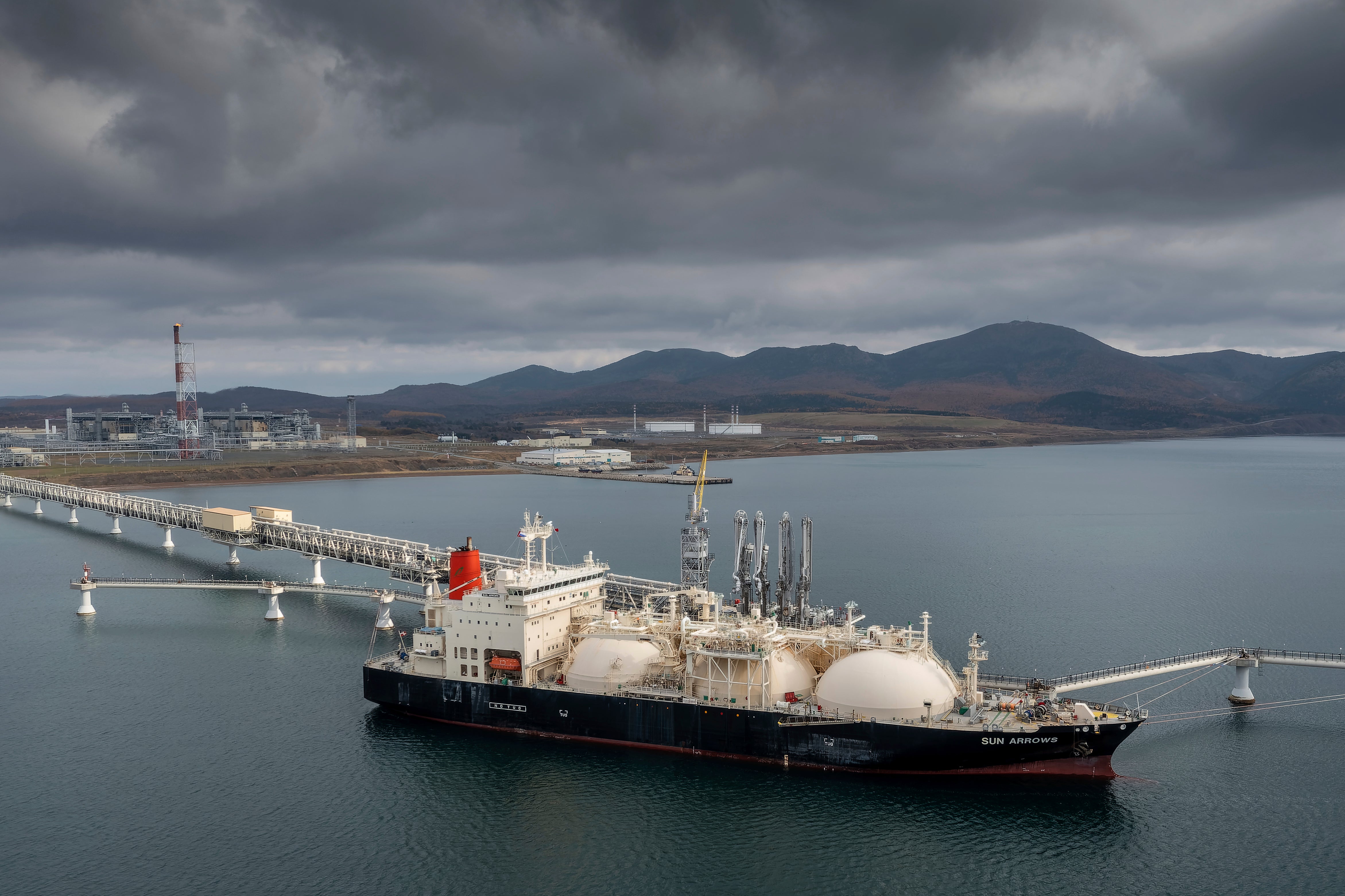Europe has to use clean energy to fight back against the Kremlin’s hydrocarbon ‘blackmail’
The failure of political leaders to move away from fossil fuels has led us to such a vulnerable position, argues Harry Cockburn


Every day, Vladimir Putin’s invasion of Ukraine is magnifying the insanity of maintaining dependence on fossil fuels and the unpredictable markets on which they are bought and sold.
Russiahas halted supplies of gas to Poland and Bulgaria after they declined to use a loophole that allows "unfriendly" countries to pay for gas in euros, but is then converted to roubles for Russian collection.
The EU has said Russia is "blackmailing Europe" with threats to cut off supplies, while the White House has said Russia is "almost weaponising energy supplies".
But whose fault is it for allowing this huge addiction to grow unchecked, in the first place? Governments have had decades of warnings about the harm emissions from fossil fuels are causing, yet, this inveterate addiction to oil and gas is seriously undermining Europe’s ability to tackle the Kremlin’s belligerence.
The thirst for fossil fuels means a number of Europe’s largest energy companies are now lining up to open rouble accounts at Russia’s Gazprombank in Switzerland, allowing them to keep buying gas according to Russia’s demand.
This will ultimately torpedo the effectiveness of European sanctions, and deliver billions in cash to Russia’s economy.
The loophole could easily be closed – Gazprombank, founded by Gazprom, is not currently sanctioned. However, subjecting Gazprombank to sanctions would immediately see an end to Russian gas imports to Europe. In the short term this could be disastrous for people in Europe, with the resultant gas shortages forecast to bring industries to a halt, spark fierce battles over which countries and businesses need the energy most, and would rapidly drive up prices of gas in Europe to record highs.
Nonetheless, with every kilowatt hour of energy used, European states are boosting Russia’s economy. It is worth remembering that for this very reason, Russia will not want to halt exports of gas for long.
It is a game of chicken which will either keep the Russian economy afloat and Europe running on Russian oil and all that entails, or if it comes crashing down, the sanctions on Russia will become real and Putin will play a major part in hobbling his country’s own economy – possibly to the benefit of Ukraine. Meanwhile Europe will see a worsening energy crisis as it scrambles at the last minute to diversify its energy mix.
At the moment Europe is attempting to call Moscow’s bluff.
On Wednesday Ursula von de Leyen, president of the European Commission, said: “We are prepared for this scenario. We are in close contact with all member states. We have been working to ensure alternative deliveries and the best possible storage levels across the EU.”
But there are considerable doubts that storage and moving to new supply lines will immediately be able to fill the gap left if Russia switches off the tap.
While the failure of European leaders to move away from fossil fuels has led us to such a vulnerable position, Putin has now hardened their resolve.
In the longer term, almost every action from the Kremlin is serving to underscore the necessity of a complete move away from fossil fuels.
In response, all countries in Europe must now work "on a war footing" – that is with extreme urgency – to sever ties with as much of Russia’s fossil fuel infrastructure as possible, followed by a total elimination of the need for such fuels.
This means improving energy efficiency – through investing in insulation and gas-free home heating systems such as heat pumps – while also facilitating huge new opportunities for renewables, and supporting new battery technology to flourish.
Think of it as "weaponising" clean energy to deliver peace, if you must.
We are currently failing to do this in the UK – instead wasting precious time by investing in North Sea oil and gas projects, delaying action to end fracking – none of which can help Ukraine, weaken Russia, reduce people’s exposure to erratic energy markets or do anything for the climate.
We don’t need to play this game anymore.






Join our commenting forum
Join thought-provoking conversations, follow other Independent readers and see their replies
Comments